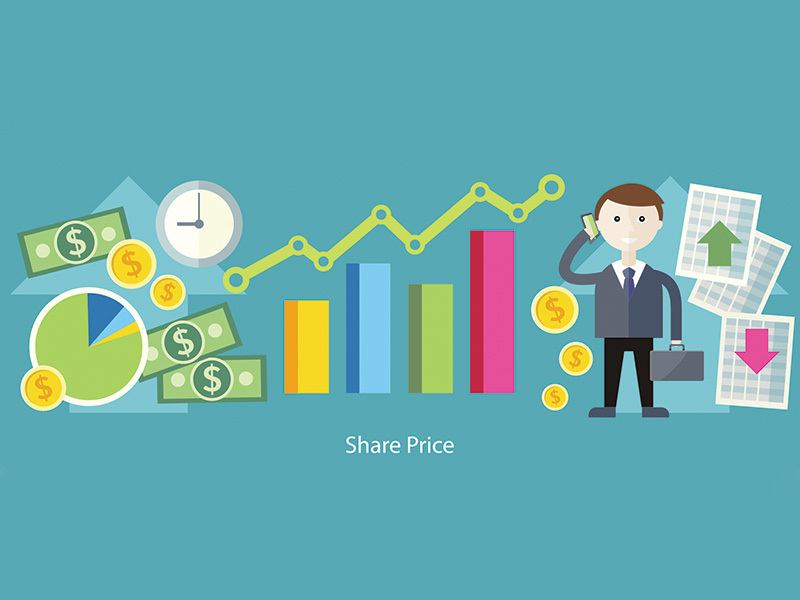
The stock market has attracted many investors as a lucrative investment option for decades. However, for the average investor, investing in the stock market is still a risky business. It is a high-risk high return scenario which, if not managed properly can result in huge losses to the investors. Owing to this, many investors invest in relatively less risky investment products available in the market other than stocks. One of such unique products is an ETF.
Stocks are the individual shares of a company listed on the recognized stock exchange. Investors can purchase any stock of a company in any quantity and can have voting rights or preference over dividends depending on the nature of the stock or share.
ETFs or Exchange Traded Funds, on the other hand, are a pool of individual stock or securities that are compiled to form a fund. These assets are usually in the same weightage as the underlying index it tracks for its performance.
Similarities between Stocks and ETFs
Although stocks and ETFs are different investment products, they do have certain similarities. Some of such similarities are mentioned below.
-
Mode of trading
Stocks and ETFs are both traded in the open market during market hours. Investors can buy and sell these investment products at any point during the day at an available price and can take advantage of intraday trading.
-
Liquidity
ETFs and stocks are among the most liquid investment products available in the market. Investors can immediately liquidate their portfolio as and when needed based on the current position of the market.
-
Income source (pays dividends)
Investors have a right to income in the form of dividends from both stocks and ETFs. While some shares provide their holders with preferential dividends based on the nature of stock, investors holding ETFs are also entitled to dividends of their underlying assets as and when declared by the company.
Differences between Stocks and ETFs
While there are certain similarities between stocks and ETFs, there are few basic differences between the two that make them distinct investment products. Read on to know.
| Category | ETFs | Stocks |
| Diversification | An investment in ETFs gives the investor a diversified portfolio of assets in the form of a single unit | An investor will have to pick many stocks to bring in the desired diversification. |
| Reduced risk | Risk is lower in the case of investment in ETFs on account of diversification provided by the portfolio | The risk of loss is higher in stocks as the investor has no escape if the stock prices crash. |
| Liquidity | The liquidity of ETFs would depend on the index it tracks and its portfolio. If the portfolio is of blue chip companies and the trading volume is high, such an ETF will have high liquidity. | Liquidity depends on the nature of the stocks. Stocks of high performing blue-chip companies will be highly liquid, stocks of middle cap companies or small cap companies may not be as liquid. |
| Access to different sectors | Investment in ETFs can provide the investor access to multiple sectors or industries based on the portfolio of the ETF. | Investment in individual stocks gives the investor exposure to one company in a particular sector or industry |
| Cost of investment | ETFs are professionally managed funds that have a higher expense ratio as compared to stocks. However, the expense ratio on ETFs is lower as compared to that of mutual funds | The cost of investment in stocks is lower as they have lower brokerage. Investors can also manage their investment in stocks on their own through good market research and build a sound portfolio |
| Control on portfolio | ETFs, though passively managed funds are still professionally managed funds and the decision to buy or sell any unit of ETFs is of the fund managers based on market analysis. | Investment in stocks provides the investors with full control over their portfolio. The decision to buy or sell any stock can be solely of the investor based on market conditions and thorough analysis. |
Factors to consider while choosing between Stocks and ETFs
-
Risk appetite
Risk exposure is a crucial factor in determining the type of investment to be made by any investor. If the investor has a low-risk appetite ETFs can be a preferred option as compared to individual stocks.
-
Investment budget
Purchasing high-performing individual stocks involve a huge cash outflow as compared to purchasing units of ETFs. Every unit of ETFs provides the investors with access to such high quality stocks at relatively lower prices. Hence, ETFs can be considered to be budget-friendly.
-
Investment goal
Investment in stocks or ETFs is also dependent on the goal of the investor. If the goal of the investor is to have access to multiple stocks, specific industry or sectors, ETFs are an easier option for such exposure.
-
Period of investment
The period of an investment may heavily influence an investor’s decision to buy an ETF or a stock based on the returns or investment goals. There are many blue chip companies that have consistently provided higher returns and investors of such assets prefer to hold the stocks of such companies for the long term.
Conclusion
While ETFs are often referred to in the same colour as stocks, there are many factors that have to be considered in making an investment decision between individual stocks and ETFs. The risk appetite, cost of investment, and investment budget are among the crucial factors in such a decision. Also, the investors need to be aware of the features and the differences between the two investment products as well as have a good market analysis to make a sound investment decision.
Frequently Asked Questions
Are ETFs good for beginners?
Yes. ETFs are considered to be a better investment for beginners as it provides the benefit of stocks as well as mutual funds at a relatively lower cost and risk factor.
Are ETFs safer than stocks?
Yes. ETFs provide the investors with an inherent benefit of diversification and exposure to multiple stocks at a lower cost. Hence, they are considered to be safer than stocks.
Do ETFs pay dividends like stocks?
Yes. When dividends are declared on the stocks in the underlying index, the benefit of the same is passed on to the investors or they will have the option to reinvest the funds in the ETF.
Can ETFs provide the benefit of exiting the fund at any point?
Yes. ETFs are considered to be highly liquid as they are traded on the stock exchange and investors can exit the fund at any point depending on their perception of the market.
What is a better investment product between ETFs and stocks?
Investment in ETFs and stocks depends on many factors like the exposure capacity of the investor, risk appetite, investment budget, etc. If the investor has a low budget and is risk-averse, ETFs are a better investment option.
Related Articles


























